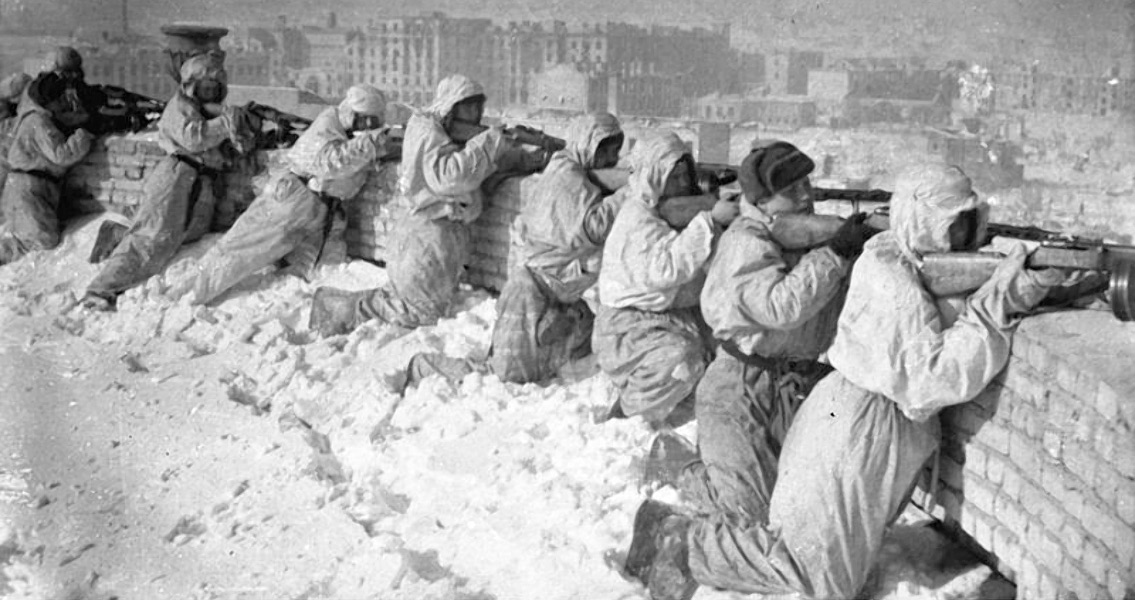<![CDATA[It was a battle which in many ways decided the outcome of the Second World War, at least in Europe. After close to seven months of ferocious fighting, the final skirmishes at the Battle of Stalingrad ended when the last German troops surrendered on 2nd February, 1943. Since early July 1942 the forces of Nazi Germany and the Soviet Union had been locked in a titanic struggle over the city of Stalingrad (what is now Volgograd). Both sides suffered horrendous losses, but ultimately the eastern advance of the Nazi war machine was stopped in its tracks. In an ideological sense the victory was huge, the army of communism triumphant over that of fascism. The superpower in the east of Europe had overcome the forces of that from the centre. For many historians it was a crucial turning point. The Nazis' Blitzkrieg had seen it swiftly conquer western Europe, making rapid progress through the likes of France, Belgium and the Netherlands. In 1941, buoyed by their success, the Nazis launched Operation Barbarossa, breaking the terms of the Molotov-Ribbentrop pact and advancing into the Soviet occupied territories of eastern Europe. Over the next year the German army made rapid progress, through the Ukraine and into Russia itself. Their advance was brought to a halt on the outskirts of Stalingrad, and the deadly efficiency which was necessary for the Nazi war plans to work started to unravel. The delay of the German advance, Stalingrad's persistent defiance and the subsequent Soviet counter offensive, had repercussions across Europe and the world. The German military suffered massive losses which it couldn't recover from, its resources severely depleted. For Britain, the prolonged Soviet defiance kept the full might of the German war machine faced away from the British Isles, possibly saving it from invasion. After the Battle of Stalingrad, what had seemed like the unstoppable march of Blitzkrieg seemed vulnerable for the first time. The German Sixth Army, under the command of General Friedrich Von Paulus, first reached the outskirts of Stalingrad on 3rd September 1942. Sensing imminent victory they were unaware of the extent of the defences that had been built up in the city, or the massive Soviet reinforcements that had arrived. Urban warfare erupted as the German troops made slow progress into the city. Both sides suffered shocking losses, while much of the city was blown apart in the fighting. Accounts from the time describe the smell of rotting bodies in the street drifting over Stalingrad. By the end of the month the Nazi flag was raised over the centre of the city, but Soviet troops still doggedly held control over the vital industrial districts along the Volga. A violent stalemate ensued, German forces making small gains in the city, but losing the captured territories again in short order. The perseverance of the outnumbered Soviet troops was crucial. By November, Marshal Zhukov was ready to launch a counter offensive with a force of one million Soviet soldiers. His armies surrounded Stalingrad, trapping Paulus' forces in the city. Hitler sent orders demanding that Von Paulus not attempt a retreat but instead use his army to continue fighting for the city. With the brutal Russian winter setting in, it was an order which doomed the German soldiers - ill equipped and unfamiliar with Russia's -40 degree temperatures and heavy snow. With the Luftwaffe unable to supply the stranded soldiers from the air, and a rescue mission led by Field Marshal Erich von Manstein failing, the defeat of the Nazis became an inevitability. Von Paulus officially surrendered on 31st January, 1943, incurring Hitler's wrath for not committing suicide. Pockets of German soldiers continued to hold out, but by 2nd February the fighting was over, the German defeat confirmed. 91,000 of Von Paulus' troops were sent to Soviet POW camps. Almost two million people died in the Battle of Stalingrad. Only in the years since the collapse of the Soviet Union have accounts from the Soviet forces started to be disclosed. Combined with the German accounts already available, they paint a picture of the horrific conditions endured by soldiers on both sides. Image courtesy of Das Bundesrchiv This article was changed on 2nd February 2016, as it wrongly suggested that Stalingrad was what is now Moscow.]]>
Brutal Battle of Stalingrad Comes to an End
